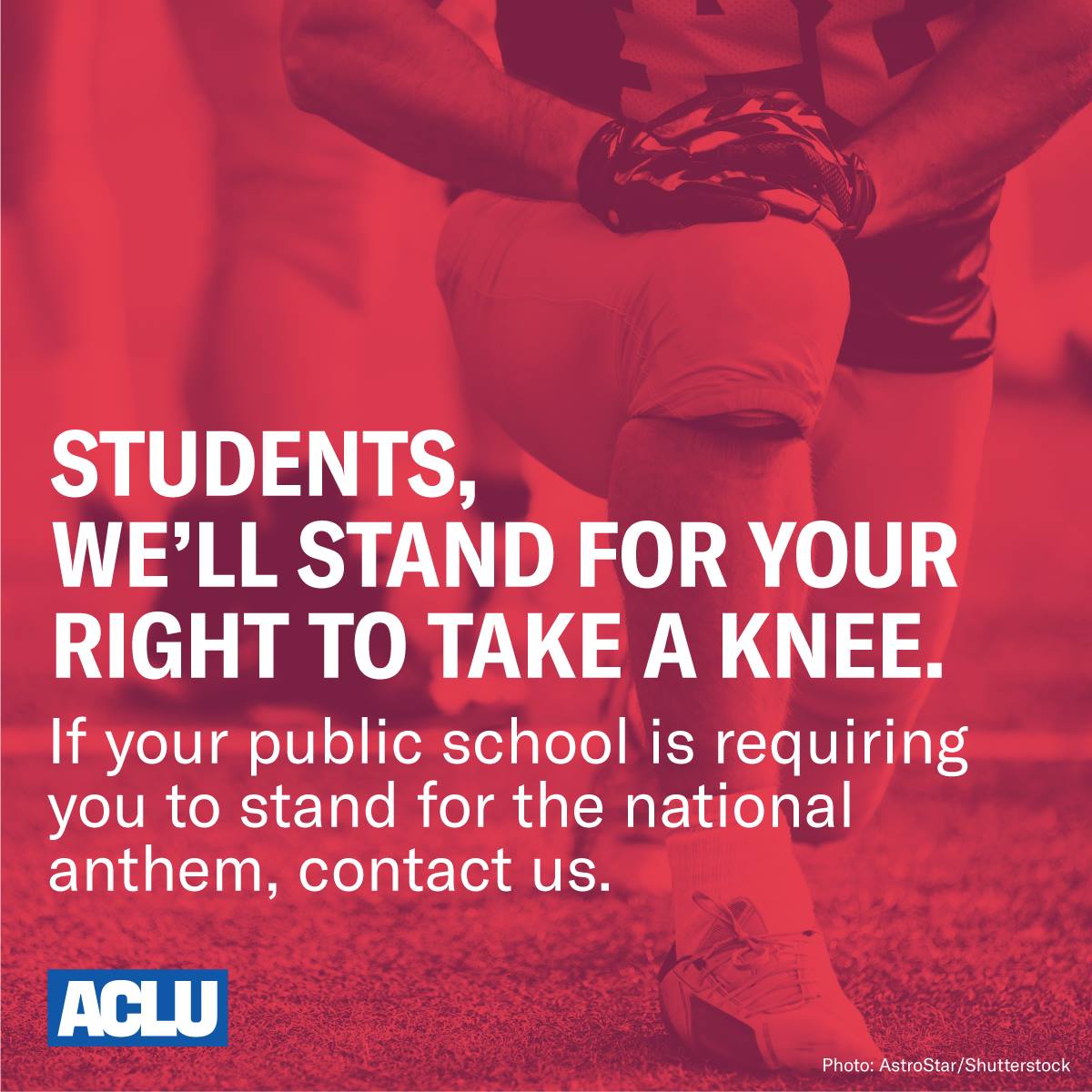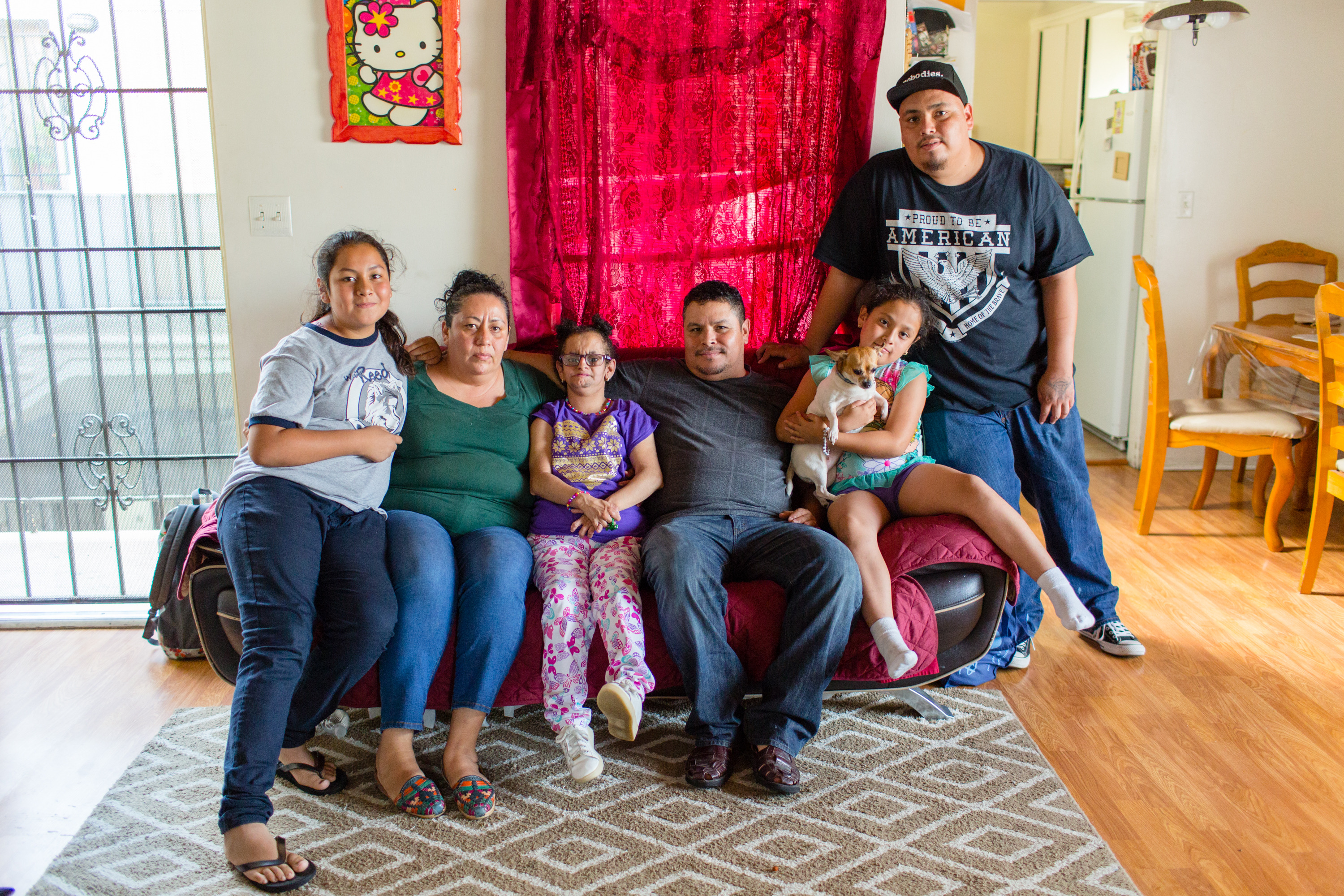In 1943, the Supreme Court ruled that students in public schools do not have to participate in patriotic exercises like saluting the flag or reciting the Pledge of Allegiance.
News flash! It’s still the law.
Today, students across the country are responding to the pre-game protests by professional athletes, when players during the National Anthem have chosen to kneel, sit, or raise a fist against police violence and state oppression of African-Americans and other people of color. Inspired, students have bravely followed suit.
While some school districts outside California have attempted to discipline students for engaging in such non-disruptive protests, punishing — or threatening to punish — students under these circumstances would violate their rights under the First Amendment, California Constitution, and California statutes. This week, we sent letters to the Department of Education and other education organizations, including the Association of California School Administrators and California Charter Schools Association, providing guidance on students' right to protest.
It’s simple: students attending California public schools, charter schools, or private high schools may not be disciplined for non-disruptive protests during patriotic exercises whether the exercise occurs during mandatory school activities, such as at the beginning of the class day, or during voluntary extracurricular activities.
Rather than disciplining students, we encourage school staff to consider using any such protests as an opportunity to teach students about the value of civic engagement and of having robust, open, and respectful dialogues about these complex issues.
Of course, some, including the president, view the refusal to participate in the Pledge of Allegiance or stand at attention during the National Anthem as unpatriotic. Yet, in West Virginia Board of Education v. Barnette, issued by the Supreme Court during World War II, a time when loyalty to the United States assumed heightened importance, the Court succinctly and eloquently articulated that true patriotism thrives only in an environment governed by freedom of expression:
"To believe that patriotism will not flourish if patriotic ceremonies are voluntary and spontaneous instead of a compulsory routine is to make an unflattering estimate of the appeal of our institutions to free minds. […] If there is any fixed star in our constitutional constellation, it is that no official, high or petty, can prescribe what shall be orthodox in politics, nationalism, religion, or other matters of opinion or force citizens to confess by or act their faith therein."
Because the law is well-established in this area, and student protests — including those addressing deep and longstanding racial and economic inequities — are consistent with core constitutional values, students, teachers, coaches, and other relevant school personnel should understand that the First Amendment protects this form of student protest.
We live in complicated and uncertain times and students will hold differing views on a variety of issues. Instead of suppressing student protest, we believe that educators have a responsibility to engage students in a respectful discussion about the issues, even when it is challenging and when they express themselves in ways in which others disagree.
Learn more about students’ rights at school and get legal help.
Date
Friday, October 13, 2017 - 2:45pmFeatured image

